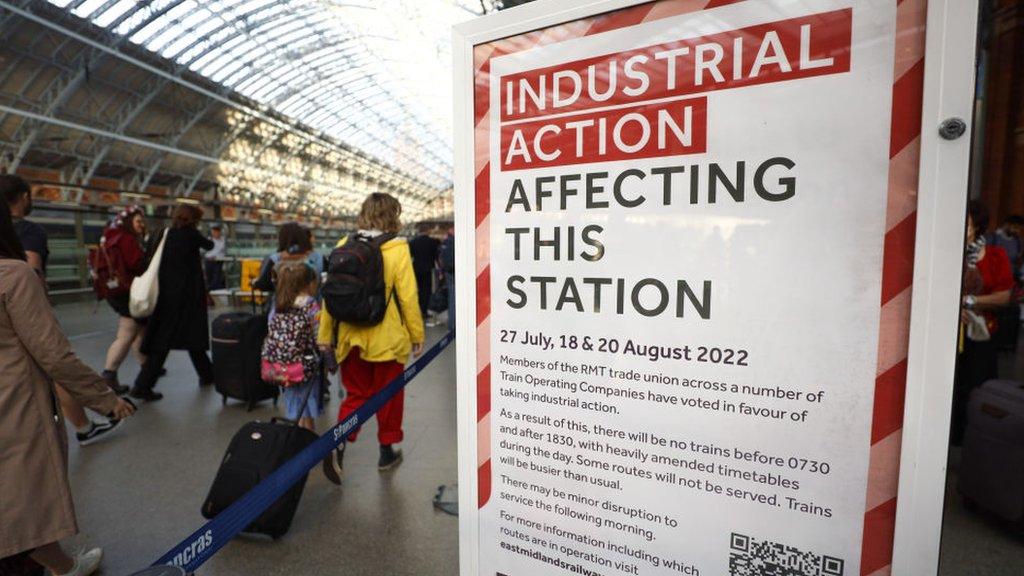Train strikes: Why are there train strikes this week?
- Published
- comments
Phoebe Smith answers your questions on travel issues this summer
Rail strikes have been taking place across the UK, with some cancelled on Thursday and Saturday this week.
Railway staff on many major train lines are refusing to work as part of protests, this is called a strike.
Train passengers will face lots of disruption to their journeys with only one in five services running.
Some areas will have no services at all, and trains will only run between 07:30 and 18:30.
More than 45,000 rail workers are taking part because the want better pay and working conditions.
People are being told to only travel if necessary. Why is this happening? Read on to find out more.
Why are there rail strikes?
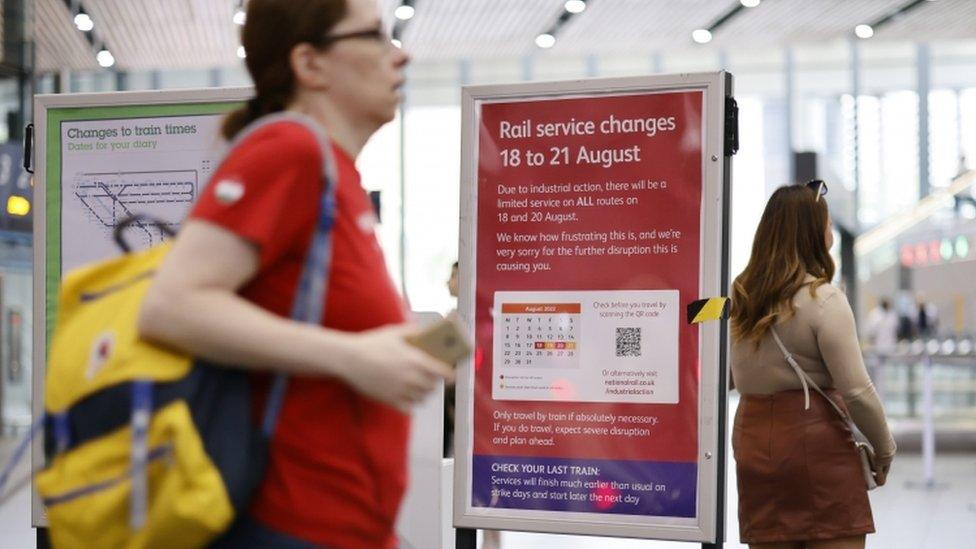
Railway staff are striking because they say they want better pay and working agreements.
It's not the first time these strikes are happening. Earlier this year in July several days of strike action took place.
Since then there has been talks between the rail companies and the unions to try to reach an agreement.
Unions represent the workers and their rights. One of the main unions involved in this action is the National Union of Rail, Maritime and Transport Workers, or RMT, have rejected the latest pay offer from Network Rail, who manage most of the UK's rail networks.
Since then further talks haven't come to any agreement, which is why these strikes have gone ahead.
What have the involved been saying?
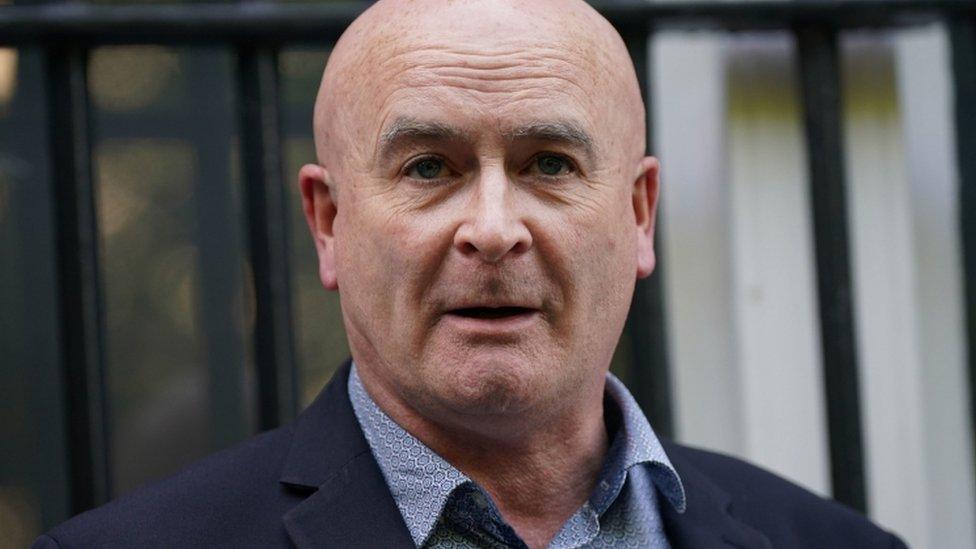
Mick Lynch is the general secretary of the RMT union
Mick Lynch, general secretary of the RMT union, said the train operating companies had "not made any improvement" on their previous pay offer.
He said that due to the cost of living crisis, his members wanted to secure a pay rise and protect their pensions.
Steve Montgomery, chairman of the Rail Delivery Group, which represents train companies, said that the railway is important to the country and it needs to "change and move with the times" in order to improve the services.
He added only once they have done that "can we fund the pay rise" for railway staff.
The government's Transport Secretary, Grant Shapps, has been highly critical of the strikes - and the unions have been highly critical of him - but his position so far has ben to say that only employers and unions can settled this dispute.
What trains are affected on Thursday 18 August?
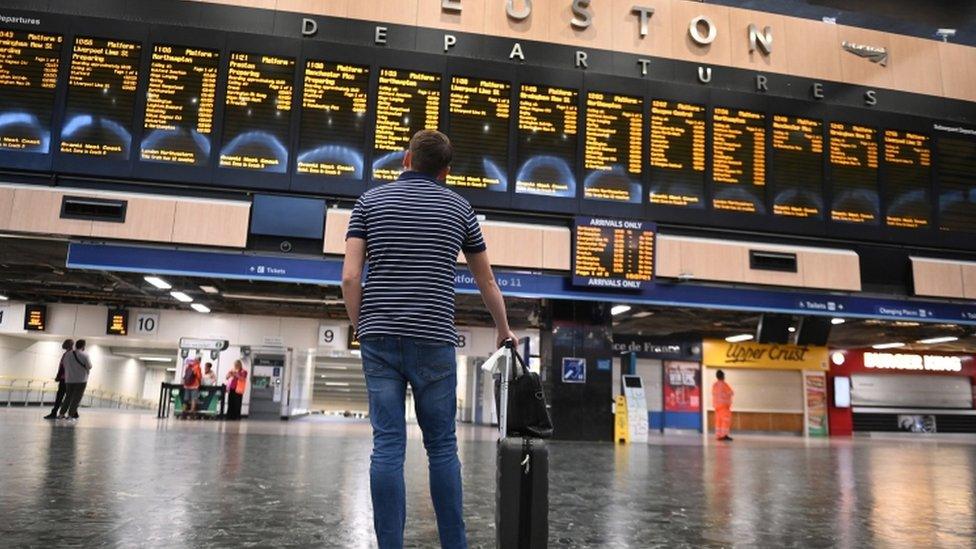
Avanti West Coast
C2C
Chiltern Railways
Cross Country Trains
East Midlands Railway
Gatwick Express
Great Western Railway
Greater Anglia
LNER
Northern Trains
Southeastern
South Western Railway
Southern
Thameslink
West Midlands Trains
TransPennine Express
On Friday 19 August there will be strike action on both the London Overground and London Underground.
Transport for London say people should avoid the tube which will have little or no services running.
On Saturday 20 August there will be more disruption as the RMT and TSSA, another union, go on strike again. The effect on services is expected to be the same as 18 August.
- Published26 August 2022
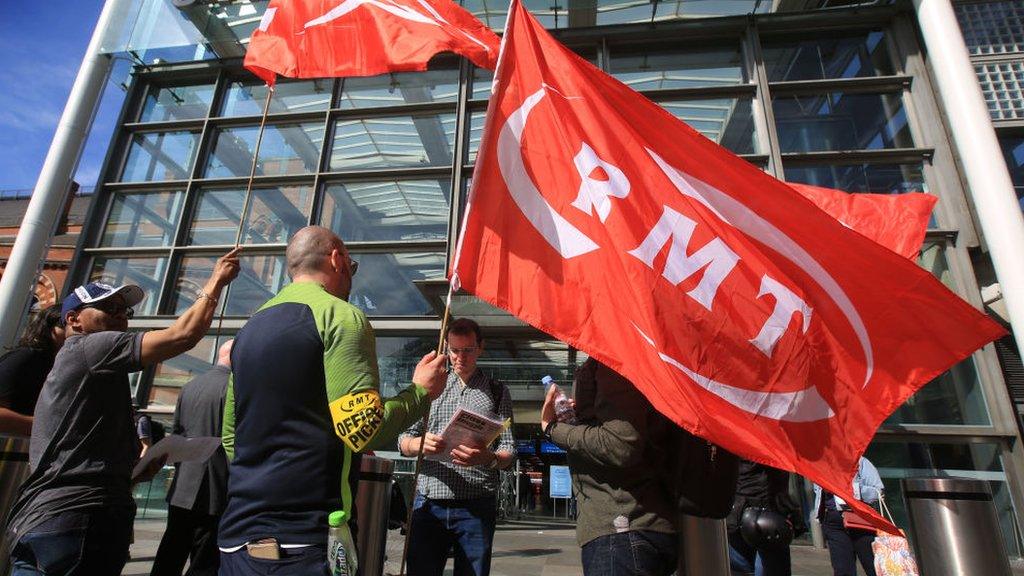
- Published27 July 2022
